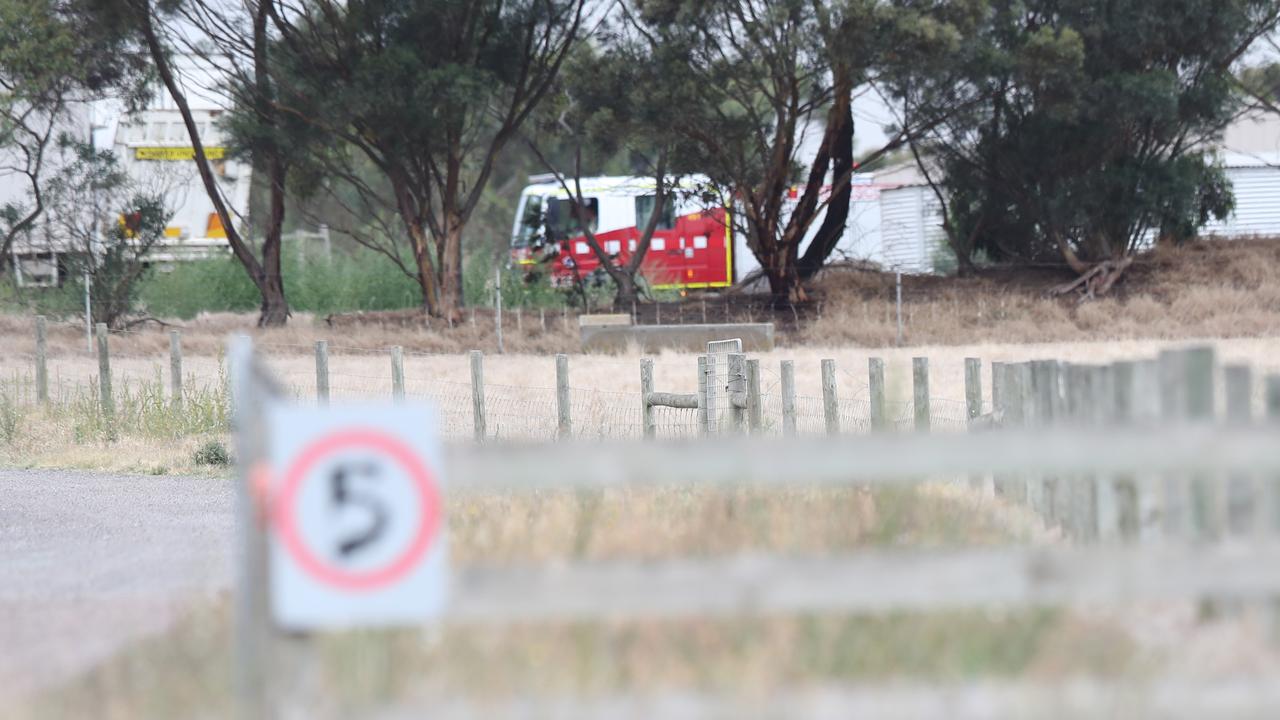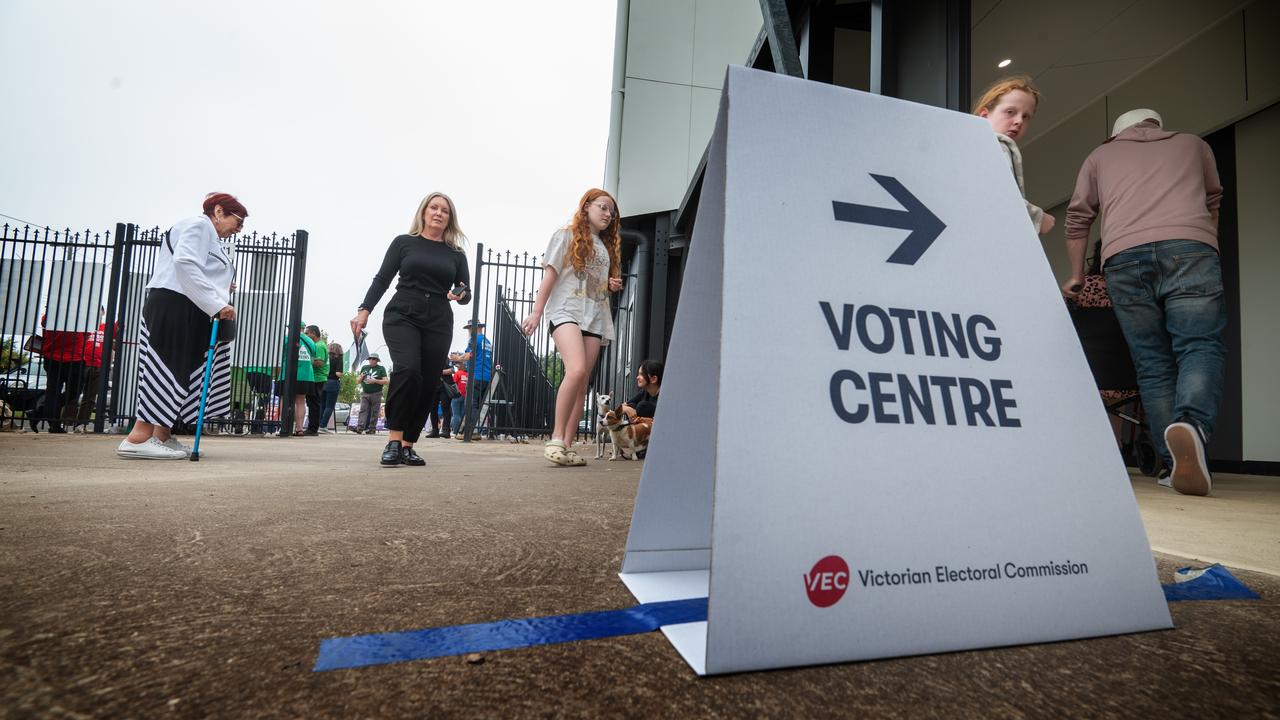Grieving parents’ brave battle to honour baby boy Charlie who died from NEC
A young couple who lost their eight-week-old baby boy to a little-known gut disease say he was “cruising along” until they noticed something wrong during a routine nappy change.
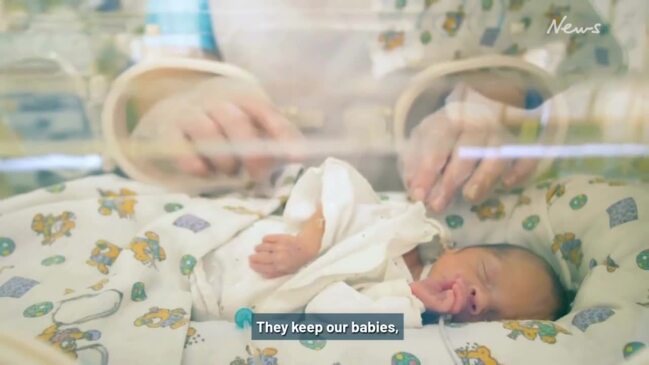
Victoria
Don't miss out on the headlines from Victoria. Followed categories will be added to My News.
A young couple who lost their baby son to a little-known gut disease is determined to help find a cure to save other families from the same heartache.
Charlie Streeter was born at 26 weeks: tiny, but a fighter.
His proud parents, Sophie and Nathan Streeter, said their son had been “cruising along” in a neonatal intensive care unit in Queensland and putting on weight; he had even progressed with his breathing.
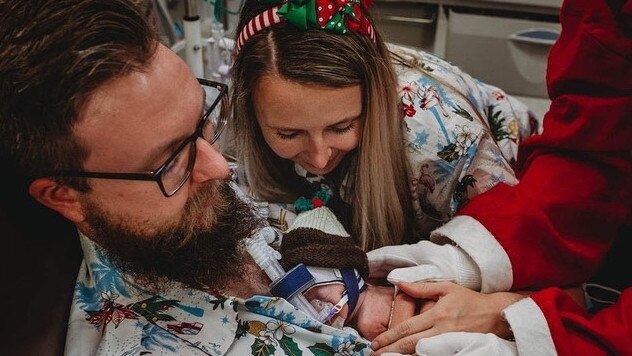
He started life at a fragile 680g, but had grown to 1.5kg. The family had hope.
“He went downhill so fast,” Mrs Streeter said. “We were changing his nappy and noticed his belly getting firm. They tried him on antibiotics to see if it settled at all overnight, but it didn’t.”
The next night, a Sunday, so serious was Charlie’s condition that surgeons operated after warning his frightened parents Charlie likely had a disease called necrotising enterocolitis (NEC).
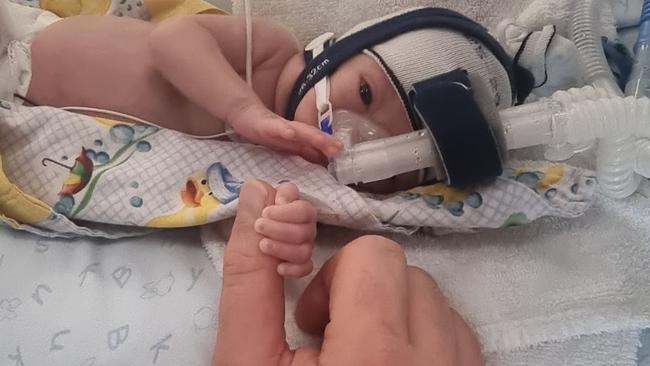
“I am a nurse,” Mrs Streeter said, “But I had to google what that was. I’d never heard of it.”
NEC is a disease of the premature gut and one of the most common causes of death in the one in 10 Australian babies born prematurely. For babies who survive, it can also have long-term impacts on the developing brain.
More surgery followed two days later to take additional bowel. Doctors would eventually remove 90 cm of Charlie’s bowel in the fight to save him. In the end, NEC claimed Charlie. He was eight weeks old and died in his mother’s arms.

The couple, who met in the navy, are now expecting their second baby and while overjoyed to be welcoming a new life, they also want to make sure more is known about NEC.
“We also want parents supported with easily-understood and trusted information,” Mr Streeter said.
“Because unfortunately this exact story is going to happen to another family.”
Their shared dream now is to start a foundation to not only help with awareness, but also to fund research into NEC.
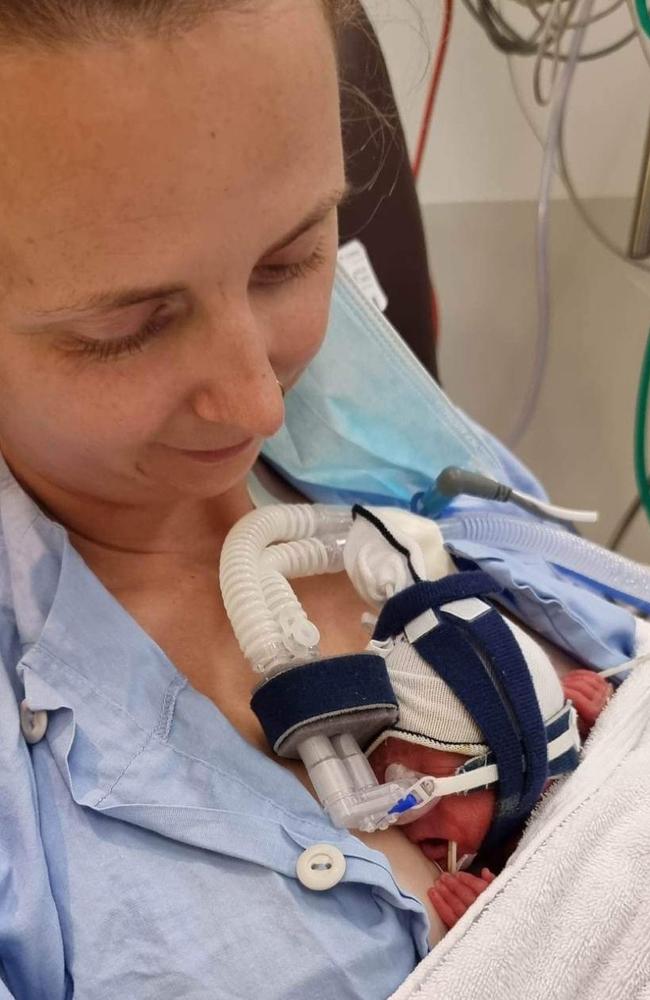
They have partnered with Melbourne’s Hudson Institute of Medical Research and its researchers, including husband and wife team professors Marcel and Claudia Nold.
Marcel Nold is a neonatologist who specialises in newborns, particularly those born early. Claudia Nold is a pharmacist with a PhD in immunology.
They also have a personal interest. Their eldest son was born early after Professor Claudia Nold developed a life-threatening condition of pregnancy that required an emergency caesarean section four weeks early.
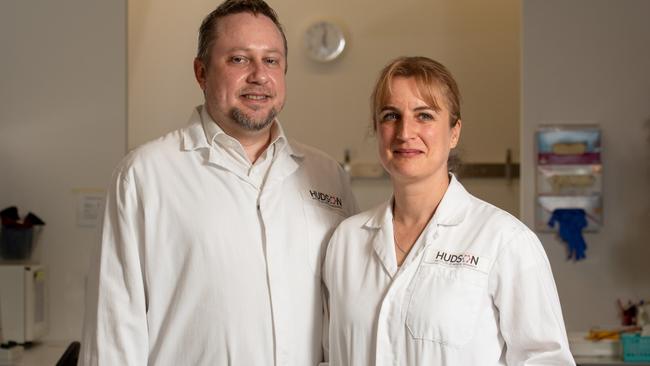
She is now working towards developing biomarkers to help predict NEC to guide clinicians treating the fragile infants. She says research from the Hudson is also investigating repurposing existing drugs to treat the disease that causes inflammation of a baby’s delicate intestinal lining.
She hopes both will be available within the next couple of years.
Professor Marcel Nold says NEC is on the increase because more preterm babies – those born before 40 weeks – are surviving.
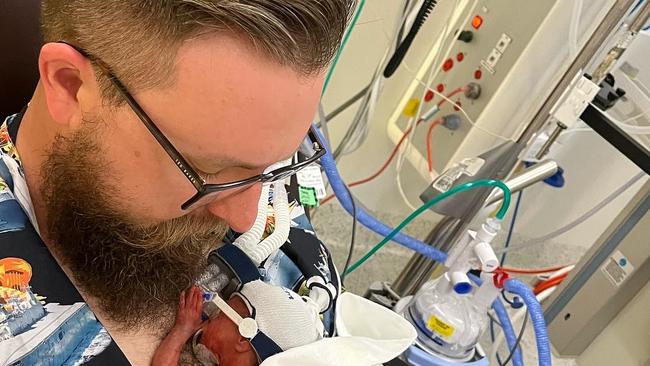
Both say inflammation is the root cause of NEC because the immune system is so immature and preterm babies are born too soon and their tiny bodies are not ready for the outside world: from breathing oxygen to having needles, even to taking their mother’s milk.
“How have we not cured NEC yet?” Mr Streeter asked. “We feel a need to do whatever we can, so that in 20, 30 or 50 years from now, NEC will be a thing of the past.
“Even if it’s just providing better information and support, we want to make sure Charlie’s life could make a difference.”
For more information visit The Hudson.
More Coverage
Originally published as Grieving parents’ brave battle to honour baby boy Charlie who died from NEC




